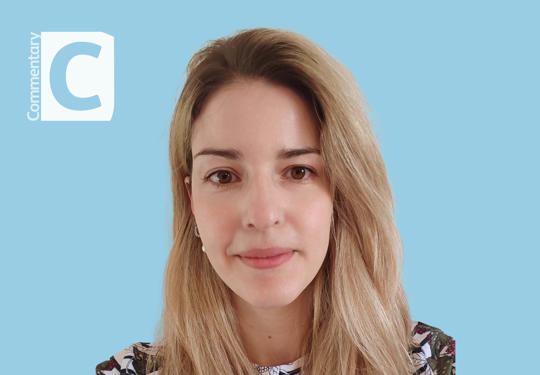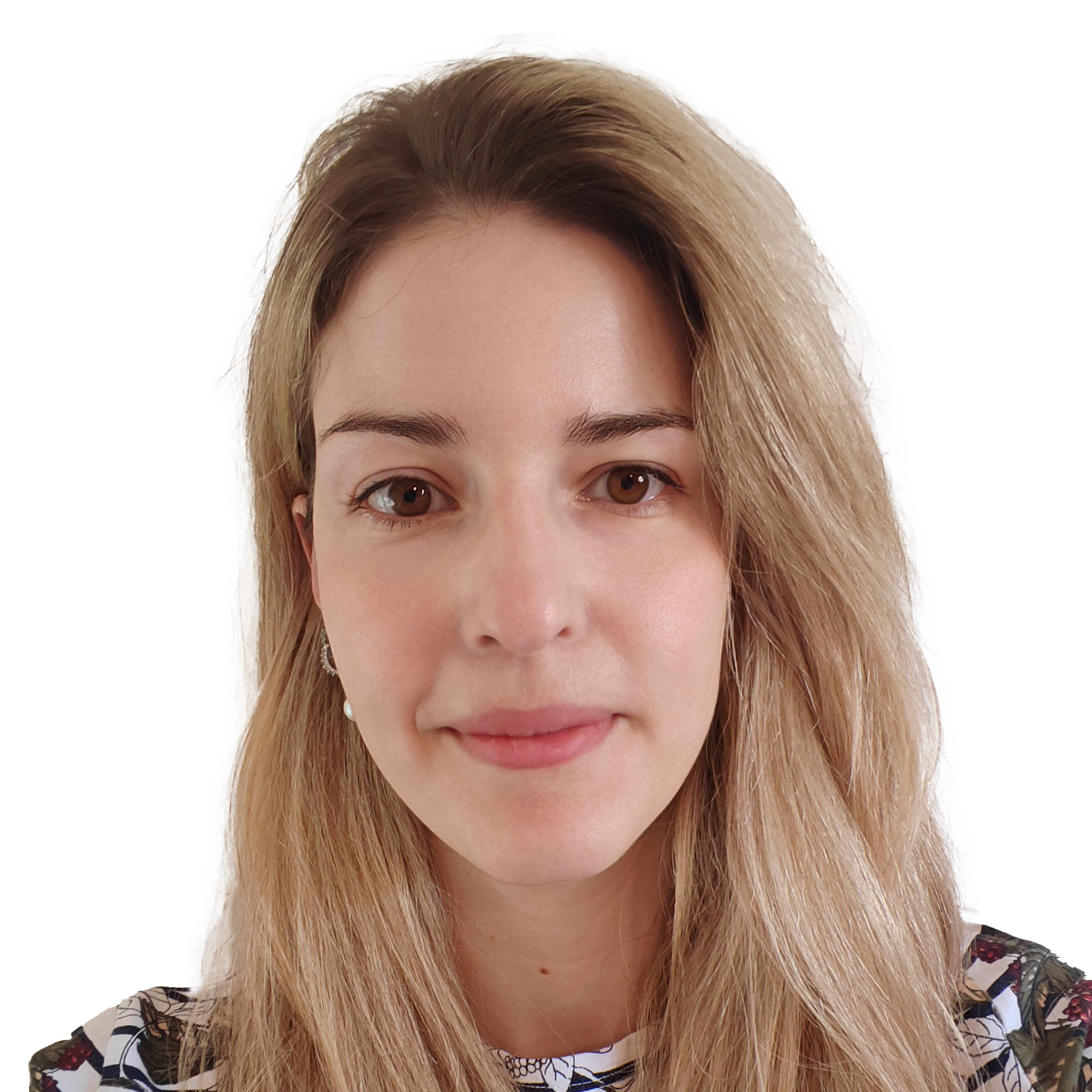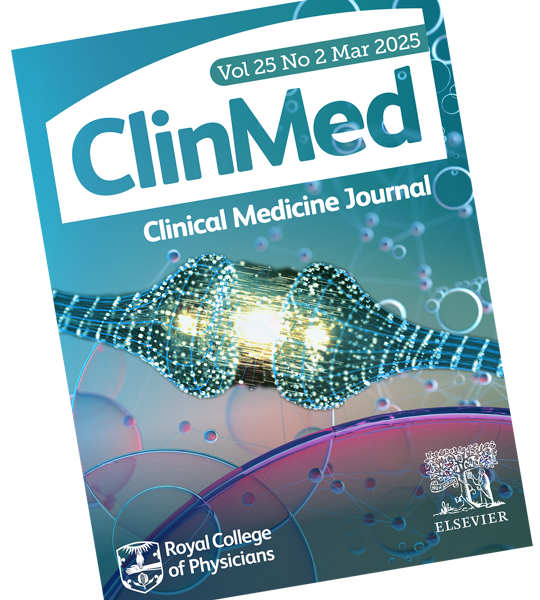Each year, a resident doctor gets the chance to influence the RCP educational offering by working with the RCP Education Directorate. Dr Vasiliki Thanopoulou has been working as RCP clinical education fellow since September 2024. As her time in the role comes to a close, she shares her experiences with Commentary.
What’s your clinical background and what made you take up the position of a clinical fellow?
I’m an ST6 in rheumatology and general internal medicine (GIM) in London. I graduated from the Medical School of Athens and moved to the UK at an F2 level. At the beginning, I was focused on exams and getting settled into the NHS. But as I became more settled and realised how things work, I became increasingly interested in medical leadership and improving the training experience of resident doctors, and doctors in general.
That led me to apply for the RCP Chief Registrar Programme. I was chief registrar for the Royal Free Hospital, London a couple of years ago, which was a really fantastic experience. I was fortunate to work alongside two other chief registrars, so we formed a nice, strong team. During this period I realised that my greatest passion was around education; the projects that I felt most interested in were around programme design and teaching delivery. As a result, taking on a teaching role as an RCP clinical education fellow felt a natural step; a continuation and a unique opportunity to dip into medical education – at the national level this time around – and enhance my skills generally.
In your time with the RCP, what sort of projects have you worked on?
I’ve had the opportunity to work on various projects. One main pillar is serving as clinical faculty for several workshops, like effective teaching skills, workplace-based assessment and on-the-job teaching. You get to learn something new all the time when teaching. I was also very fortunate to present a workshop at Med+ in 2024 along with two senior educationalists.
Another important thing was reviewing and updating educational resources, making sure that they are up-to-date with current guidelines and adding in references. I have also created a few extra podcasts, which was really rewarding as I was interacting with colleagues and consultants outside the RCP, to empower and inform people of interesting topics that come up every day in our clinical life.
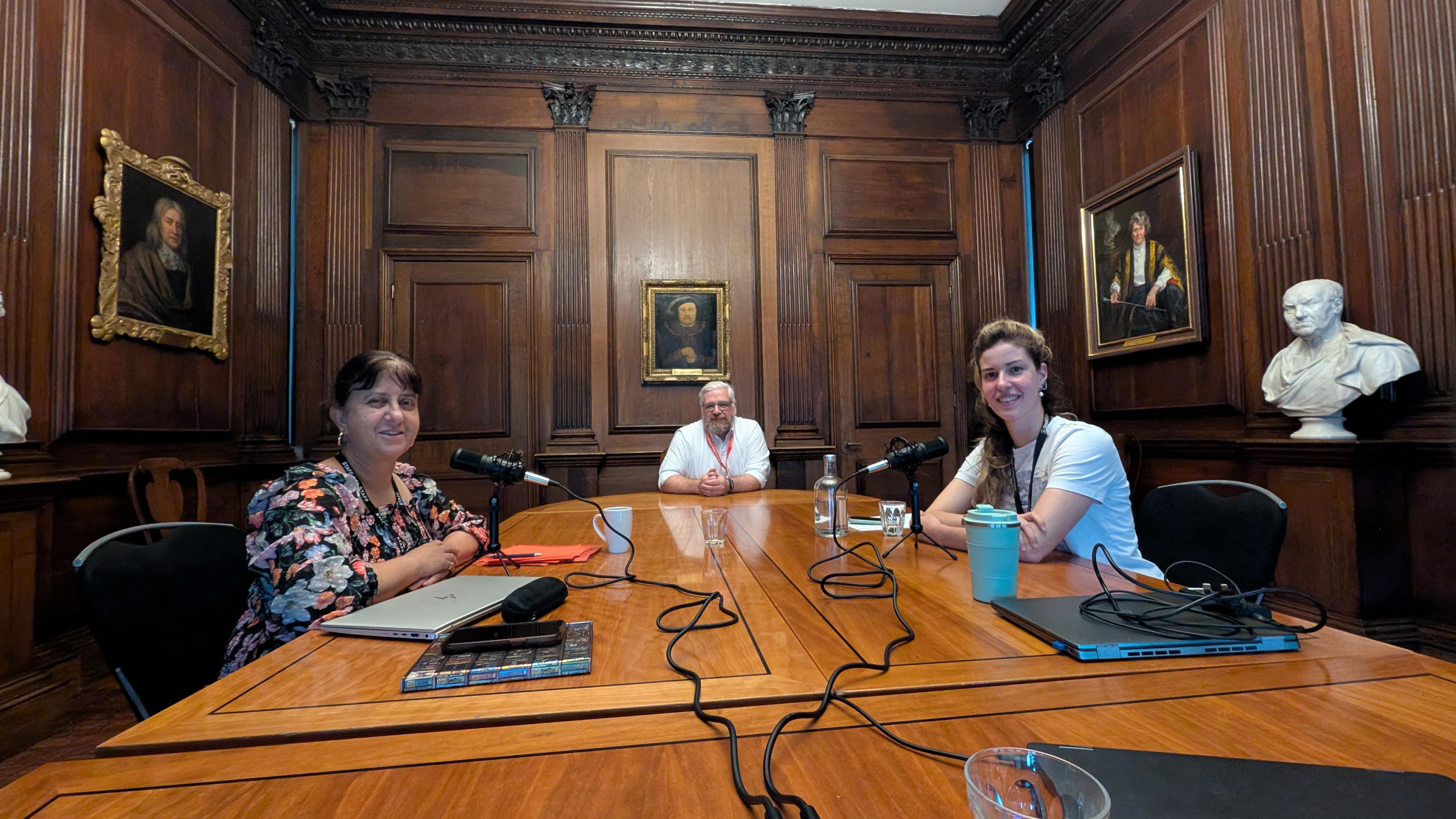
Recording an RCP podcast.
I also became part of the RCP Advisory Group on Health Inequalities. It’s doing an amazing job. Every clinician is aware of health inequalities, but whether they have the time or can provide solutions to tackle them is another thing. I had the luxury of time and flexibilities to explore different avenues, of how I can potentially make an impact. We’ve created a video, to share with the upcoming Chief Registrar Programme cohort, around quality improvement (QI) projects that address health inequalities.
Drawing from my experience as an international medical graduate (IMG), I have been involved with the RCP Global team, creating a website with useful information for people coming to the UK to work for the first time.
I was also involved in the Medical Practice in Adult Learning Disability postgraduate certificate; I served as a tutor for a few of the students, not only doctors, but nurses, pharmacists and occupational therapists. That gave me a wider understanding of why people want to make changes, and helped me see NHS problems from different angles.
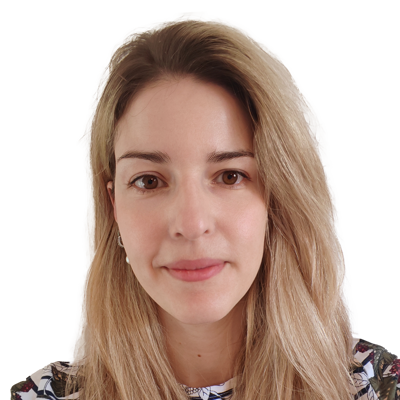
My time at the RCP has been incredibly diverse. It has been such an interesting year; one day of the week can be completely different to the previous one.
Dr Vasiliki Thanopolou
RCP clinical education fellow
What opportunities has this role given you?
Personally and professionally, you grow during your time in this job. While I was doing this fellowship, the RCP was also funding the Postgraduate Certificate in Medical Education, done in partnership with University College London.
It was transformative, as I learnt fundamental theories of education that I could link back into my own work and see how I can actually implement the theory, in order to provide better teaching or be a better supervisor for junior colleagues. The role also helps develop managerial and organisational skills, presenting in meetings, justifying why you want certain changes or specific funding, and why actions are going to be important. These are all tools that you can take back into your clinical practice.
It’s a different world from the hospital. In hospital work, we are very focused in the now, on the patient in front of us. That’s our job and our role – to provide an immediate solution. Working at the RCP, my mind shifted to more long-term goals and projects, like policies implemented years down the line. That was quite interesting, because it’s a different perspective of timelines.
Having a platform to influence and create things to be disseminated to a wider audience was something I was fortunate to have. You don’t really have that opportunity usually. Networking with senior clinicians, educationalists or RCP leadership was good. It was nice to hear firsthand their points of view and seeing how they deal with uncertainties or incidents – it was an important learning experience for me.
The role has also given me the opportunity to develop my own interests. The health inequalities projects or IMG work is not something that the previous fellows were doing, but equally they have worked on different policies and areas that I didn't have to take on. In general, there are some tasks, like developing the RCP podcasts or support as clinical faculty in the workshops, that every clinical fellow does, but at the same time you have the unique opportunity to find the areas that you want to explore. That flexibility is quite valuable and not really something you have very often in clinical life.
How has this role helped the RCP focus more on the experiences and needs of resident doctors?
The fellowship serves as a bridge between the RCP’s Education team and the hospital life of resident doctors.
I was able to provide real-life experience; everyone in the Education team is incredibly knowledgeable, but if you are a doctor, you can be very helpful to the team as you have the insight and authentic perspective of the needs of different groups of doctors. I also believe that my engagement with the Resident Doctor Committee, even as an observer, has also helped towards this. Being an IMG was also a unique opportunity – I was the first clinical education fellow who had not graduated in the UK, which may have given me extra perspective in understanding this group of colleagues.
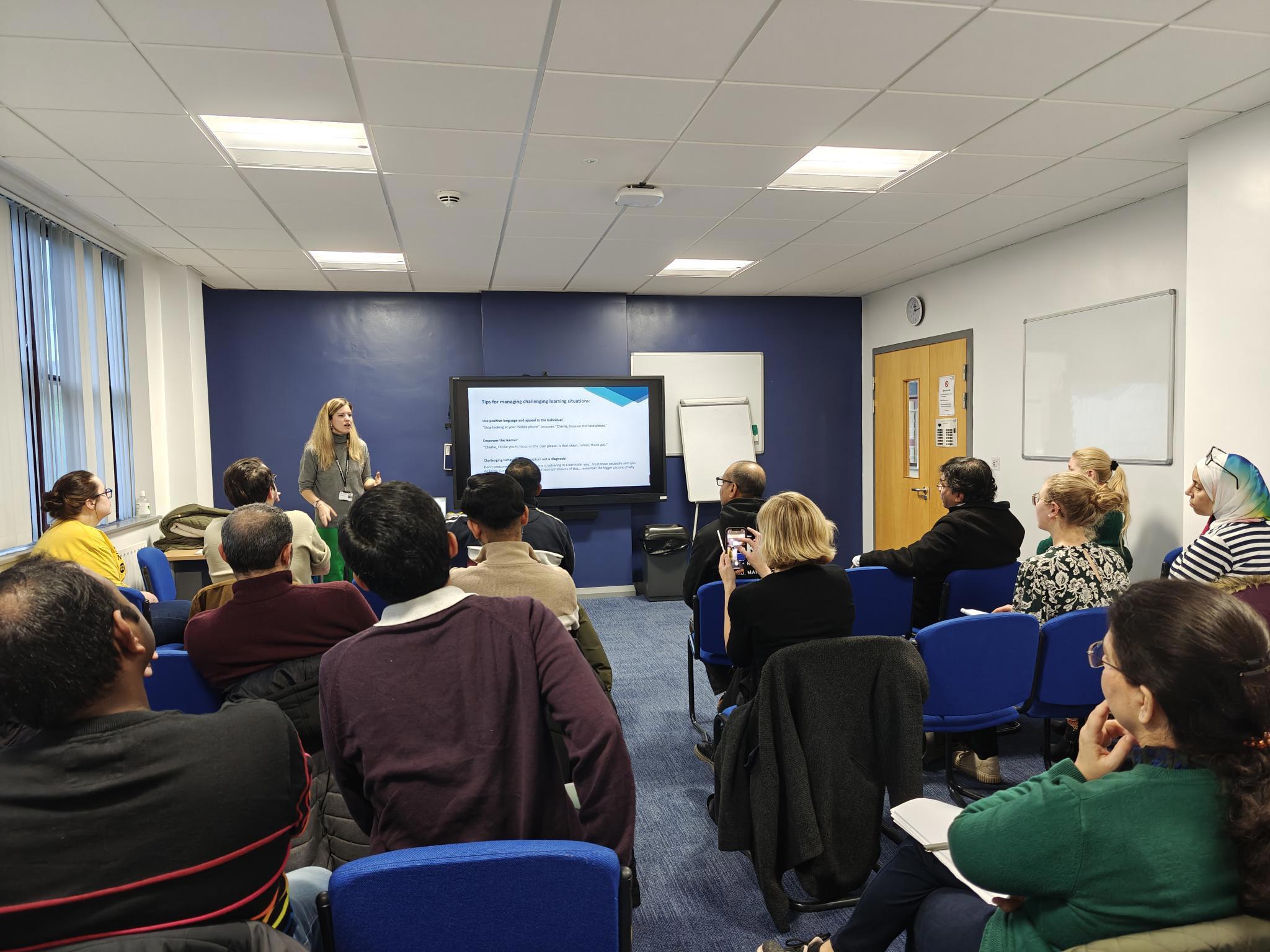
Vasiliki teaching in one of the RCP educational workshops.
As this year comes to an end, what are you planning next?
I will be returning to clinical training; I'm very excited to join the rheumatology team at University College London Hospitals NHS Foundation Trust. I'll be going back part time, partly to give me time to progress in the diploma of medical education. A very exciting opportunity has also arisen – I will be able to continue working with the RCP, one day a week in one of my non-clinical days. I am really happy about that. I will continue to serve as a clinical faculty when needed and carry on with some of my projects.





